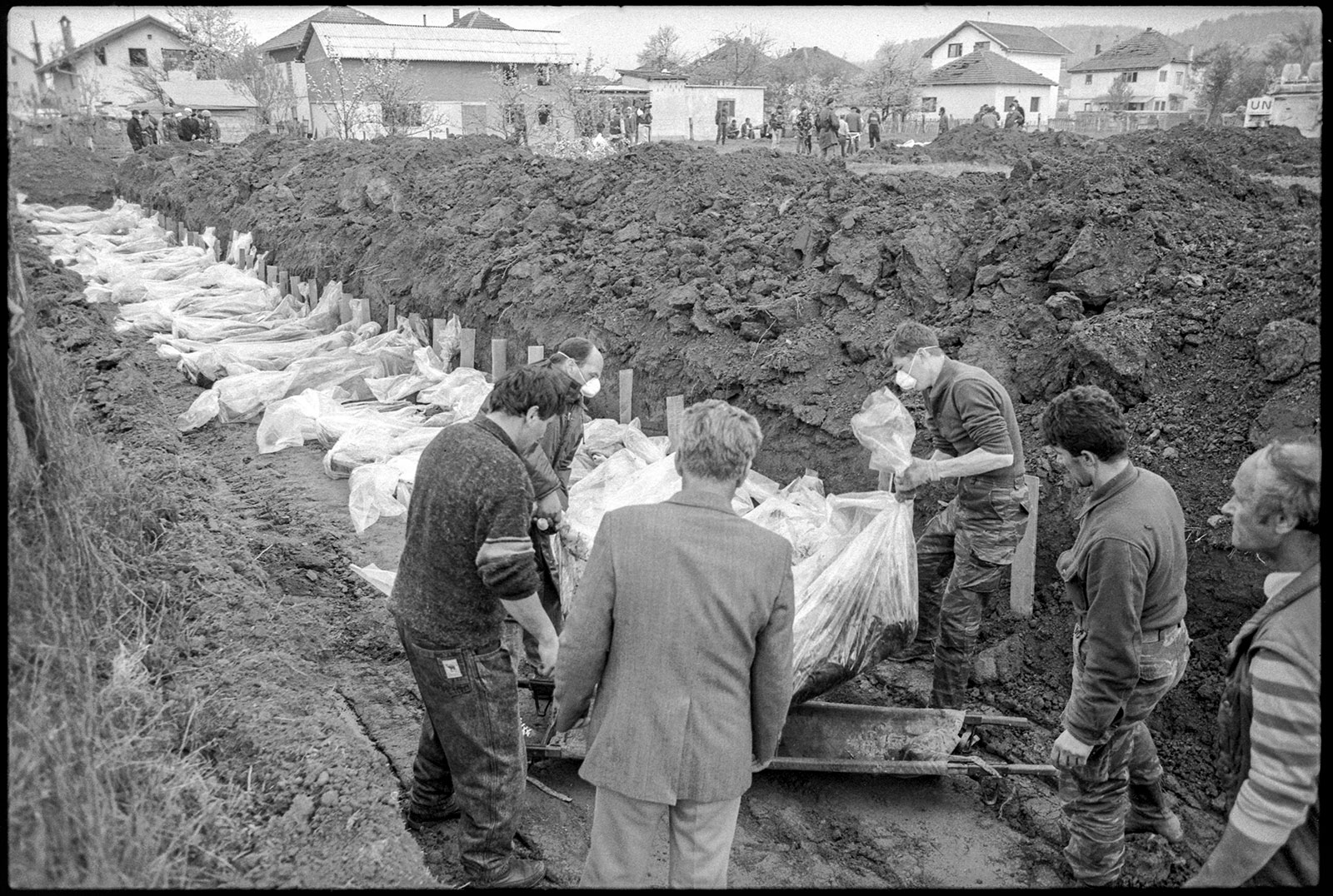The tranquil village of Ahmići in Bosnia-Herzegovina is not far from the town of Vitez. One of the most terrible massacres of Bosnian Muslims during the Bosnian war took place here 30 years ago, on April 16, 1993. In the early hours of the morning, special forces of the Croatian Defense Council (HVO) entered Ahmići and killed a total of 116 civilians, including 32 women and 11 children.
The village of Ahmići was completely destroyed
The Croatian HVO had previously conquered the surrounding villages and Ahmići. Many Muslim victims were burned to death in their homes because the units set fire to the residents’ houses. With unbelievable brutality, the Croatian attackers not only destroyed the villagers’ homes, but also the mosques. All the inhabitants, including babies, children, teenagers and adults, were victims of the murder squads. The defenceless inhabitants had no chance, because anyone who tried to escape from hell was shot by snipers posted in the area.
The defendants denied in court that they were involved in the massacre
The then British commander of the UN blue helmet soldiers of the Cheshire Regiment, Colonel Bryan Watters, presented evidence on the involvement of Croatian soldiers in the war crime on the second day of the international war crimes tribunal in the Netherlands. All six accused soldiers of the Croatian HVO had denied involvement in the massacre in court.
Six days after the massacre, the UN peacekeepers reached the completely destroyed village. Colonel Bryan Watters described the Ahmići massacre as a “cruel military action”. In order to hide their own guilt for the mass murder of Ahmići, members of the HVO buried the killed victims in various places. The remains of nine victims were discovered in Mostar, 150 km away.
The Bosnian war lasted from March 1, 1992 to December 14, 1995, a period of three years. More than 100,000 people were killed during the war and two million people had to leave their homes. The Srebrenica genocide is considered one of the worst crimes committed in Europe since the end of the Second World War. In Turkish and Azerbaijani historiography, the term mezalim has come to be used for mass violent crimes against the Muslim civilian population.

Picture: SENSE Transitional Justice Center
